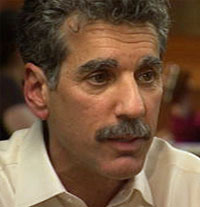
Distinguished Lecturer: John T. Cacioppo, Ph.D.
Tiffany and Margaret Blake Distinguished Service Professor
The University of Chicago
Presentation: Social Isolation and Health
Biography
John Cacioppo, Ph.D., is the Tiffany and Margaret Blake Distinguished Service Professor at The University of Chicago, the director of The University of Chicago Center for Cognitive and Social Neuroscience, and the past Director of the Arete Initiative of the Office of the Vice President for Research and National Laboratories at The University of Chicago.
Dr. Cacioppo's research is focused on understanding the causes and effects of social isolation. Social species, by definition, form organizations that extend beyond the individual. These structures evolved hand in hand with behavioral, neural, hormonal, cellular, and genetic mechanisms to support them because the consequent social behaviors helped these organisms survive, reproduce, and care for offspring sufficiently long that they too reproduced, thereby ensuring their genetic legacy. Social isolation represents a lens through which to investigate these behavioral, neural, hormonal, cellular, and genetic mechanisms. Evidence from human and nonhuman animal studies indicates that isolation heightens sensitivity to social threats (predator evasion) and motivates the renewal of social connections. The effects of perceived isolation in humans share much in common with the effects of experimental manipulations of isolation in nonhuman social species: increased tonic sympathetic tonus and HPA activation, and decreased inflammatory control, immunity, sleep salubrity, and expression of genes regulating glucocorticoid responses. Together, these effects contribute to higher rates of morbidity and mortality in older adults.
Among the awards he has received are an NIH MERIT award, the Distinguished Scientific Contribution Award from the American Psychological Association, the Campbell Award (for Distinguished Scientific Contributions to Personality and Social Psychology) from the Society for Personality and Social Psychology, the Award for Distinguished Scientific Contributions to Psychophysiology from the Society for Psychophysiological Research, the Troland Research Award from the National Academy of Sciences, the Scientific Impact Award from the Society for Experimental Social Psychology, the Presidential Citation from the American Psychological Association, the Theoretical Innovation Prize from the Society for Personality and Social Psychology, the Award for Distinguished Service on Behalf of Personality and Social Psychology from the Society of Personality and Social Psychology, the Distinguished Member Award from Psi Chi, an Honorary Doctor of Science Degree from Bard College, the Patricia R. Barchas Award from the American Psychosomatic Society, and the “ISI Highly Cited Researchers” in Psychiatry/Psychology. He is an elected Fellow in 16 scientific organizations; a Past-President of several of these, including the Association for Psychological Science, the Society for Psychophysiological Research, and the Society of Personality and Social Psychology; and the current Chair of the Psychology Section of the American Association for the Advancement of Science and President of the Society for Social Neuroscience. At NIH, he has served as a member of the National Advisory Council on Aging, and he currently is serving as a member of the Council for the Center for Scientific Review.








